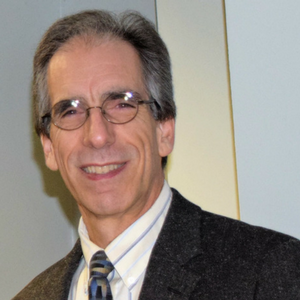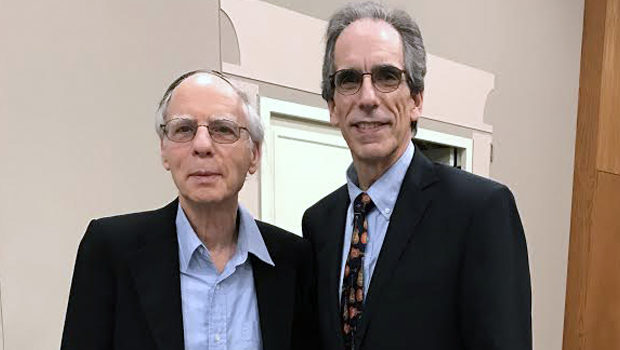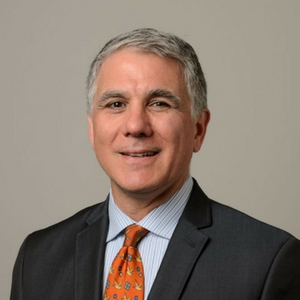 Many congratulations to Jeffrey Shoulson on his appointment as Vice Provost for Interdisciplinary Affairs. The appointment is testimony to his outstanding achievements as a scholar and administrator. We’re deeply grateful for his outstanding leadership of the Center for Judaic Studies and Contemporary Jewish Life since his arrival at UConn in 2012, and we wish him all the best for this important new function within the university administration. Mazal tov, Jeffrey!
Many congratulations to Jeffrey Shoulson on his appointment as Vice Provost for Interdisciplinary Affairs. The appointment is testimony to his outstanding achievements as a scholar and administrator. We’re deeply grateful for his outstanding leadership of the Center for Judaic Studies and Contemporary Jewish Life since his arrival at UConn in 2012, and we wish him all the best for this important new function within the university administration. Mazal tov, Jeffrey!
Faculty News
Professor Susan Einbinder Appointed Visiting Professor at Brown University, Hebrew University, and the University of Haifa
Professor Stuart Miller Appointed Leon Charney Visiting Scholar at Yeshiva University
Farewell Wishes to Dr. Nehama Aschkenasy
The Center for Judaic Studies and Contemporary Jewish Life at UConn extends warm wishes to Dr. Nehama Aschkenasy on her retirement. We offer her heartfelt thanks for her invaluable work in establishing the Center for Judaic and Middle Eastern Studies at UConn-Stamford!
A Message from Nehama Aschkenasy
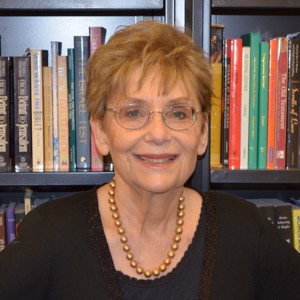 Professor (Em.) of Comparative Literary and Cultural Studies, UConn
Professor (Em.) of Comparative Literary and Cultural Studies, UConn
Founding Director (Em.), Center for Judaic and Middle Eastern Studies, UConn Stamford
Dear Friends, Supporters, and Students,
I’m now officially retired from my position as Professor and Director. This is a bitter-sweet moment; it’s tough to build from the ground up, but it is tougher to let go. The Talmud says that “the baker should not attest to the quality of his own dough.” I am the proverbial “baker” in this case, but, as I’m writing not only for myself but for all our loyal friends, and especially the founders of our Center, I’ll take this opportunity to reflect on our accomplishments.
Over thirty-seven years ago a group of visionary community leaders embarked on a collaborative effort with the local campus of the University of Connecticut, and founded the Center for Judaic and Middle Eastern Studies. Since its inception, our Center has had a dual mission: to develop and expand credit courses in all areas of Judaic Studies within the undergraduate curriculum and establish a forum for public discourse, in courses, seminars, and conferences, where both our regular students and community members would learn and discuss topics of current issues or of Jewish scholarship with the best and the brightest of today’s scholars, writers, and policy analysts.
On a personal note, I have had the privilege of working with some of the best individuals who advocated for us and made it financially possible for the Center to accomplish our phenomenal success. Reviewing the breadth of our offerings through the years and the caliber of guest speakers who addressed our groups, I am proud and also awed! Some of these speakers were already well known at the time, such as the late CHAIM POTOK and DR. IRVING HOWE, but I dare say that we also “discovered” junior scholars who then went on to brilliant careers, such as Political Scientist DR. SHIBLEY TELHAMI, (now the Anwar Sadaat chair at the University of Maryland, but then a young scholar only beginning to make his mark in the academic community), DR. FAWAZ GERGES (currently at the London School of Economics, who recently published a study of ISIS), and RON CHERNOW, the prominent, best-selling biographer (currently of “Hamilton” fame, who discussed at the time his book on the Jewish banking family, the Warburgs). We were fortunate to study with the brilliant orator, historian DR. HOWARD SACHAR, who was our guest speaker several times; we had the pleasure of learning from the internationally-acclaimed Israeli writer AMOS OZ, the renowned theologian DR. SUSANNAH HESCHEL of Dartmouth College, and, recently, DR. BRUCE HOFFMAN of Georgetown University, one of the foremost experts on contemporary terrorism. We also hosted twice the MOST REV. DR. DAVID JAEGER, member of the Roman Rota, the Vatican’s Supreme Court, who shared with us his vast knowledge as a theologian and unparalleled experience as peace maker. AMB. DR. DANIEL KURTZER, currently Professor of Middle East Policy at Princeton University and former U.S. Ambassador to both Israel and Egypt, addressed our audiences twice in recent years. And in our 2017 Annual Kuriansky Conference, we all enjoyed tremendously the knowledge and oratory of the renowned legal scholar, Dr. Jeffrey Rosen. Our topics have been varied and fascinating, from interfaith dialogues on women in Judaism, Christianity, and Islam, or on the meaning of “A Just War” in the three Abrahamic religions, to various issues related to the Middle East and contemporary Israel, to discussions of “Jews and Capitalism,” Jewish mysticism, and a variety of themes in history, from Jewish revolts in ancient Palestine to life in the East European Shtetl, to episodes of resistance and heroism during the Holocaust.
Our credit courses introduced the wealth of the Judaic texts and history to students who came from a diversity of ethnic and religious backgrounds, focusing on the great contribution of Judaism to Western civilization and the meaning of studying a religion, a culture, and a people’s history in the context of secular academia. Our college-age students learned of the ethics of social justice advocated in the Judaic masterworks, of the tolerance and respect for other views and creeds enfolded in Judaic teachings, and of the highs and lows of the Jewish historical experience. We have been pioneers in introducing courses in Holocaust, the Bible as literature, and the Bible’s impact on the literary history of Western civilization, on women in Judaic literary tradition and in Jewish religion, and of contemporary Israeli literature with a special angle, studying these contemporary works in the context of Middle Eastern literature, society, and politics.
In one of Amos Oz’s stories, the protagonist reflects back on his life’s ambitions, and concludes that all he would leave are “footprints on the water.” I hope and pray that my life’s work, and the tireless efforts of our friends through the years, will amount to real footprints on solid ground, and that our Center will continue to flourish in future years.
Warm regards to all,
Nehama
Professor Stuart Miller Featured in CT Jewish Ledger
Professor Sebastian Wogenstein Named Interim Director of the Center for Judaic Studies and Contemporary Jewish Life
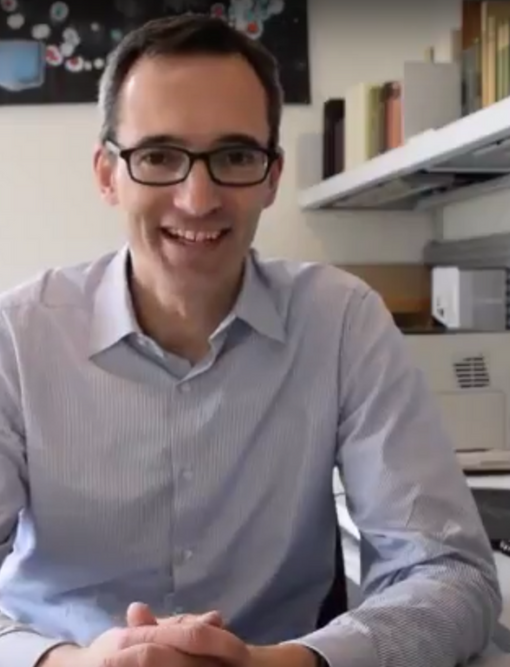 The Center for Judaic Studies and Contemporary Jewish Life extends a warm welcome to our newly appointed Interim Director, Professor Sebastian Wogenstein. Sebastian is an Associate Professor in the German section of the Literatures, Cultures, and Languages Department, a faculty associate of the Human Rights Institute, and a faculty member of Judaic Studies. He has published widely in the areas of human rights and literature, German-Jewish literature, and 20th/21st century German literature and theater.
The Center for Judaic Studies and Contemporary Jewish Life extends a warm welcome to our newly appointed Interim Director, Professor Sebastian Wogenstein. Sebastian is an Associate Professor in the German section of the Literatures, Cultures, and Languages Department, a faculty associate of the Human Rights Institute, and a faculty member of Judaic Studies. He has published widely in the areas of human rights and literature, German-Jewish literature, and 20th/21st century German literature and theater.
We offer our congratulations to former Director Jeffrey Shoulson in his new capacity as Interim Vice Provost for Interdisciplinary Initiatives. His service and dedication to the Center were invaluable, and we wish him well in his new endeavor!
Professor Stuart Miller Speaks at the 125th Anniversary of the New England Hebrew Farmers of the Emanuel Society
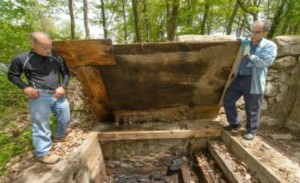
Professor Stuart Miller, the Center’s academic director, spoke at the 125th anniversary celebration of the New England Hebrew Farmers of the Emanuel Society on Sunday, June 11. The society, formed in 1892, served the Russian Jewish farming community that settled in Chesterfield, CT.
Today, the Society works to preserve the site of that historic Jewish community. An expert in ritual baths in ancient Israel, Professor Miller helped lead an excavation in Chesterfield, in 2012, where a rare mikveh was discovered as well as the remains of a synagogue and creamery. The site is now listed on the National Register of Historic Places.
For more information on the anniversary celebration, visit the New England Hebrew Farmers of the Emanuel Society at http://newenglandhebrewfarmers.org/nehfes-125th-anniversary-celebration/
You can also read about the excavation at Chesterfield in UConn Today.
Professor Arnold Dashefsky Interviewed by Connecticut Jewish Ledger
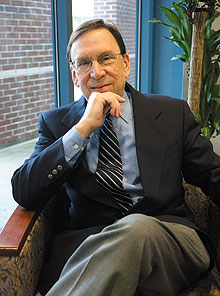 Founding director of the Center for Judaic Studies, Professor Arnold Dashefsky, was recently interviewed by the Connecticut Jewish Ledger. Professor Dashefsky spoke about the recent release of the American Jewish Year Book, which he co-edits along with Professor Ira Sheskin of the University of Miami. He discussed the Pew Research Center’s findings on Orthodox Jewry, which were reprinted in the Year Book, as well as the current trends in North American Jewish life. Visit the Ledger’s website to read the article in full.
Founding director of the Center for Judaic Studies, Professor Arnold Dashefsky, was recently interviewed by the Connecticut Jewish Ledger. Professor Dashefsky spoke about the recent release of the American Jewish Year Book, which he co-edits along with Professor Ira Sheskin of the University of Miami. He discussed the Pew Research Center’s findings on Orthodox Jewry, which were reprinted in the Year Book, as well as the current trends in North American Jewish life. Visit the Ledger’s website to read the article in full.
May 3: Professor Roden to Discuss Latest Book for English Department’s Book Talk
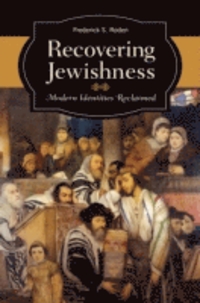 Judaic Studies affiliated faculty member Professor Frederick Roden will be discussing his latest book, Recovering Jewishness: Modern Identities Reclaimed (Praeger 2016) at a Book Talk sponsored by the UConn English Department. The event takes place on May 3, at 1:30 pm, in the Stern Room, Austin Hall.
Judaic Studies affiliated faculty member Professor Frederick Roden will be discussing his latest book, Recovering Jewishness: Modern Identities Reclaimed (Praeger 2016) at a Book Talk sponsored by the UConn English Department. The event takes place on May 3, at 1:30 pm, in the Stern Room, Austin Hall.
Also presenting at the Book Talk will be Professor Patrick Hogan who will discuss his latest work, Imagining Kashmir: Emplotment and Colonialism (University of Nebraska 2016).
Refreshments will be served.
New Fall Course Offering! Anthropology of Jewish Cultures
James Barnett Professor of Humanistic Anthropology Richard Sosis will be teaching a new course this fall entitled Anthropology of Jewish Cultures. The course is being developed by Professor Sosis and Assistant Professor and Director of the Research Program on Global Health and Human Rights Sarah Willen, recent awardees of the course development grant offered by the Center for Judaic Studies and Contemporary Jewish Life. Credits earned from the course may be applied toward the major or minor in Judaic studies.
Anthropology of Jewish Cultures (ANTH 3098) will meet this fall from 2:00-5:00 pm on Wednesdays.
About the Course:
Abraham Joshua Heschel once poetically remarked that the Bible is not human theology but rather “God’s anthropology.” God, so to speak, has not been alone in studying Jewish life. In Western culture, Judaism has been characterized by its minority, outsider, and marginal status. Not surprisingly, given anthropological interest in studying “the other,” anthropologists have produced an extensive literature aimed at understanding Judaism and Jewish experiences. The primary goals of this course will be to engage this literature by exploring the diversity of Jewish cultures and examining how influential anthropological theorists (e.g., Mary Douglas, Roy Rappaport, Alan Dundes, and Melvin Konner) have sought to explain the variation and commonalities of these cultures.
The course will place considerable emphasis on Jewish folk traditions as they’ve emerged cross-culturally and their tension with, as well as occasional acceptance by, rabbinic institutions. Moreover, anthropological efforts to document these traditions, such as Ansky’s ambitious Jewish Enthnographic Program, will be discussed. Students will be exposed to the rich ethnographic literature on Jewish cultures. These ethnographic writings will be used to explore various topics, communities, and movements within Jewish culture including: Haredim, Ethiopian Jewry, Yiddish culture in Europe and the U.S., chavurah communities, Sephardic communities in Muslim cultures, the Ba’al Teshuvah movement, women’s status within Jewish cultures, and secularization among Jewish communities.
The course will conclude by briefly examining how rabbinic writers, including Mordechai Kaplan, Neil Gillman, and Jonathan Sacks, have drawn upon anthropological data and theories to interpret Jewish teachings and provide visions for the development of Jewish life.
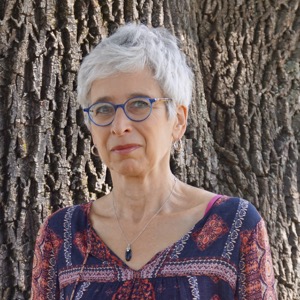 Professor Susan Einbinder (Literatures, Cultures and Languages / Hebrew and Judaic Studies) will be Hirschfeld Visiting Professor at Brown University during the spring semester 2019 and Visiting Professor at the Hebrew University in Jerusalem, Israel, during the fall semester 2019. Professor Einbinder will also be a visiting scholar at Haifa University's Center for Mediterranean History for a month in the winter 2018/19.
Professor Susan Einbinder (Literatures, Cultures and Languages / Hebrew and Judaic Studies) will be Hirschfeld Visiting Professor at Brown University during the spring semester 2019 and Visiting Professor at the Hebrew University in Jerusalem, Israel, during the fall semester 2019. Professor Einbinder will also be a visiting scholar at Haifa University's Center for Mediterranean History for a month in the winter 2018/19. 